How to choose a new career
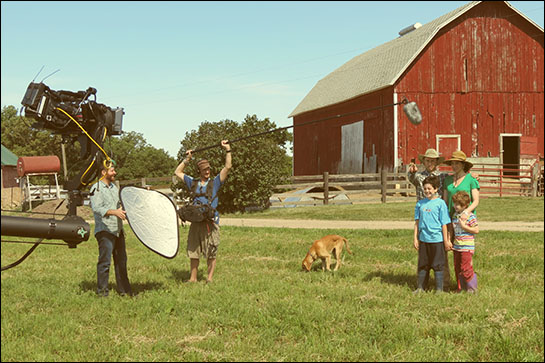
It was a big decision whether we should do reality TV. Since mostly only people with crazy, falling-apart lives do reality TV, I realized that to feel good about doing the show, I’d have to think about it as a job. Otherwise I couldn’t justify spending so much time on it. So I evaluated the TV show as if it were a job opportunity.
1. Make sure it’ll be a psychologically positive experience.
In my mind, reality TV is letting someone else tell my story. But right now I make a living from me telling my story. So I need to be really careful letting other people do that. Also, the Farmer said no. Just plain no. He wanted nothing to do with it. He pointed out that he is the only one of the two of us who lets someone else tell his story, and he can tell me from experience that I won’t like it.
Scientific American published research about how editing our own stories is good for our well-being. And I know from writing other peoples’ resumes that it’s very difficult to see multiple facets of our own story. Which made me very curious about what the reality TV people would put together for my story. So I let them come film. Just to see what it would be like.
2. Make sure you can make money.
I studied the reality TV world for months by reading tabloids. I learned that the people who make the most money from reality TV are people who can run it like a business. Kim Kardashian is like this, but I’d like to think I’d be more like Bethany, who sold a product line from her show.
I called the reality people to make sure I could sell my product on my TV show.
“Sure,” said Yasmine, (the person who is in charge of dealing with me.) “That’s a great idea! What will you sell?”
“Goat cheese,” I said. I have already discarded this idea many times, but I was on the spot. Anyway, I know I’ll think of something that I can make on the farm and sell online, so it only matters that Yasmine said yes.
So they came for two days. That’s Rick, the sound guy. Almost as soon as the team arrived, he put a microphone on each of us.
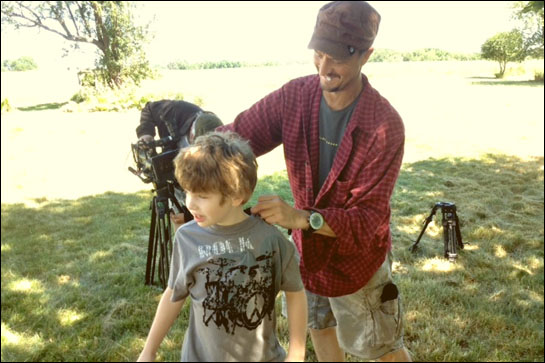
We never knew when we were turned on and when we were off. I was surprised to see that the Farmer let them put a mic on him.
3. Make sure the new career will leverage your gifts.
Then each of us did an interview. That was great for me, of course, because my favorite thing is to pretend that I’m having a conversation with someone but really it’s just me talking about me and I don’t even have to feign interest in the other person. My sweet spot.
When I think about if this reality TV thing is a good job for me, I think about research I read from Charles Dike, professor of psychiatry at Yale University. He talks about the spectrum of lying and how on one end is the pathological liar, and people with Asperger’s are on the other end.
For most reality shows there’s a problem that the people don’t want to show their true selves on camera. And for most people in business, there’s the problem that people show too much of themselves and get in trouble. Clearly, my penchant for saying whatever comes into my head, is more suited for reality TV than for business. So that’s one sign that I should be doing this.
4. Ask yourself how it’ll affect the people around you.
I worried a bit about my sons doing interviews.
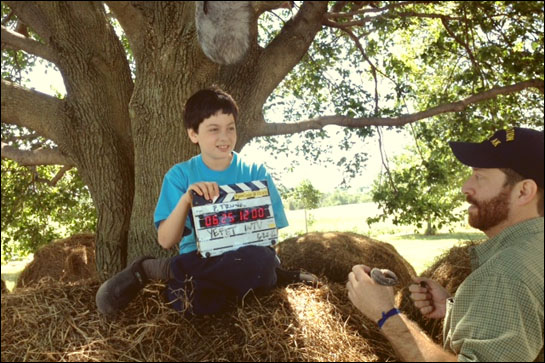
My oldest son relished being able to list the swear words I say in public. “She really needs to work on that,” he said. Not that I would know, really, what he said. Because I couldn’t be there.
But my son told me afterwards, right before he said, “Don’t worry. I didn’t say anything bad.”
This is Dave. He is the creative director. I like him because he listened to me do a coaching call and he said it was so amazing that there needs to be one coaching call on every show.
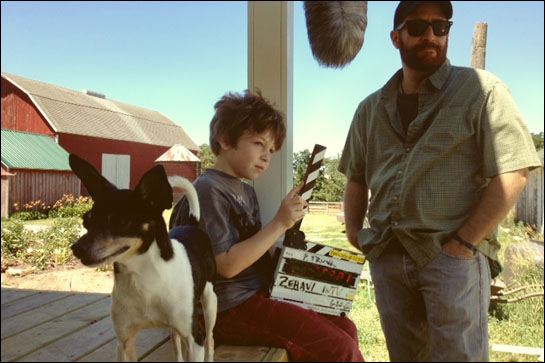
During the interview with the Farmer, which the Farmer announced he would not do but ended up doing anyway, Dave asked the Farmer about my coaching.
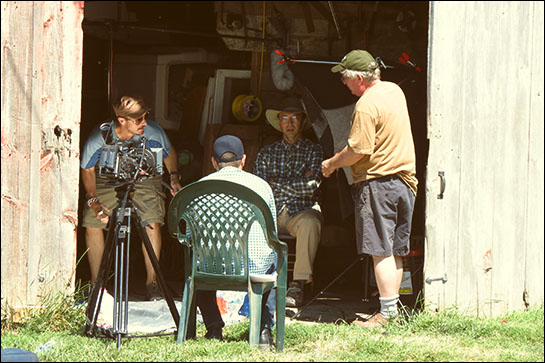
The Farmer said, “She’s amazing at coaching. She can figure out exactly what someone should do with their life after talking with them for just five minutes. I’ve heard her do it over and over again. For someone to get that for an hour, it’s great. It’s a gift she has. They are lucky. But to live with it, that’s different. I feel like one of those ants under a magnifying glass, and the sun is reflecting so hot that I have to keep running away so I don’t burn.”
5. Will you like the people you’ll work with?
By the end of the first day, the crew felt like friends. And we hung out on the porch with them while the kids practiced and I made dinner for everyone. Which brings me to maybe my favorite piece of workplace research ever, which is from Tim Rath, at Gallup: If you have two good friends at work, it will never feel like you have a bad job.
Yasmine said that everyone at the production office took the test on my blog about whether they have a good job, and everyone ended up scoring high because they like the people they work with. I see why. I liked the people, too.
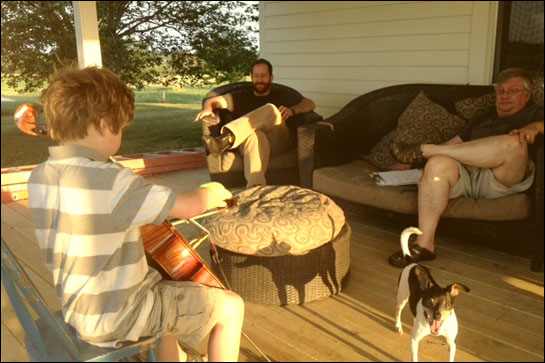
By the second day, the TV people had each improvised a fast way for taking their shoes on and off when they went in the house. They knew where to step to avoid cow poop and the electric fence. And Yasmine, who had the impossible job of keeping everything from baby pig rambunctious boys on schedule, turned the rental car into her office.
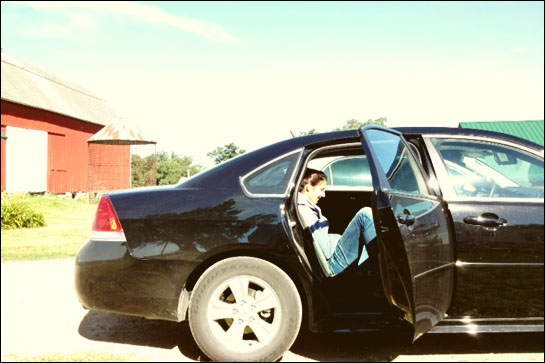
Everyone had gotten in a groove.
Except me. The second day I woke up dreading that I had to still be nice to everyone.
6. Figure out what the job will it be like at its worst. Can you take it?
I am a person who needs a lot of alone time. I need writing time. I need time to read obsessively in a scalding hot bath.
So I woke up early to do that, because when I am anxious I get cold, and I cope by taking baths that are so hot that the plumber said it’s illegal to have a house with such hot water. But that’s how hot I need it to feel good.
I didn’t know the hot water wasn’t hot until I got into a cold bath. And once I am wet, and not hot, I can’t get warm again. It’s like I’m a lizard or something. I think this falls under my sensory integration disorder, because my son, who also has sensory integration disorder, has the same issue but with cold water. He can’t cope with even lukewarm water. It must be cold.
So, by the time the film crew came to me on the second day, I was in my winter jacket. Sulking.
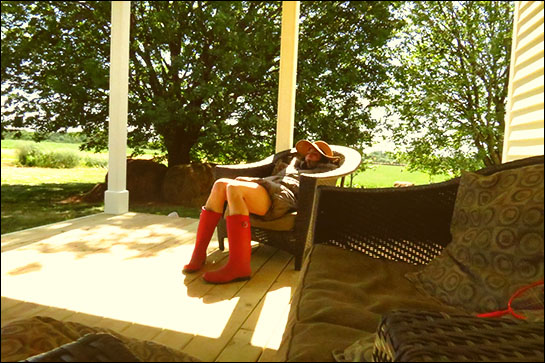
I think they were prepared for something like this, though. After all, they found me by reading my blog. So we discussed how I cannot have good social skills right now, so no one should talk to me. They didn’t ask me to take my coat off. They just sort of worked around it for a while, as we walked from scene to scene.
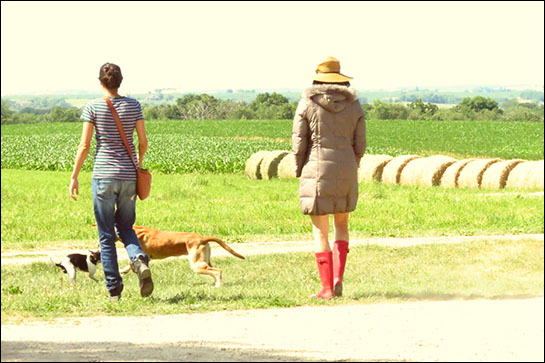
They have a name for every type of shot. The wide angles of the farm are “beauty shots,” the stuff that goes along with a voiceover is “B roll,” and the shot where the protagonist of the show stands alone is the “hero shot,” which I pulled myself together for by the middle of the day.
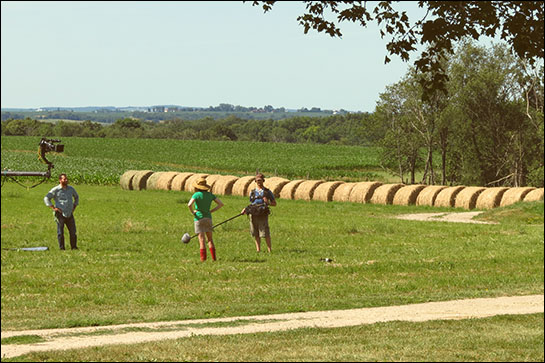
7. Make a decision and go with it.
The crew was from from Chicago, LA, and Toronto and I felt pressure to tell them if I didn’t want to do it. I didn’t want them to do more and more work and then I say no. The second day they spent a lot of time taking footage of the kids playing music.
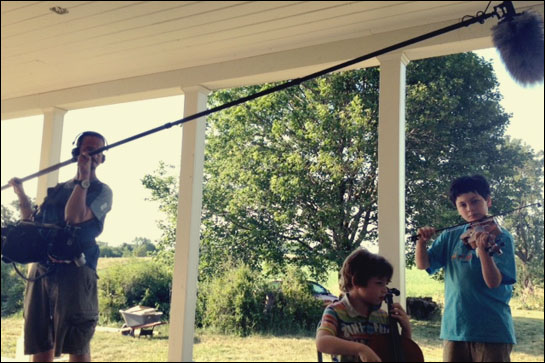
I usually cringe when they play together because it’s more like a fight than a duet: who can make the other one mess up. But with the camera crew there, the boys played together better than they’ve ever played before. It reminded me of the Stanford Study of Writing that showed that kids learn to write much faster if they are writing for the Internet—where there’s an audience—than for their teacher, which is an audience of one.
It was moments like that, where I saw us each being our best selves for the camera, that I thought this reality show is probably good for us. We cannot be our best selves all the time, but being on camera gives us glimpses of our best selves so that we know better what we are capable of. Each of us. I am not the only one who felt good about the show at the end of the day. We all lingered nearby as the crew packed up their stuff.
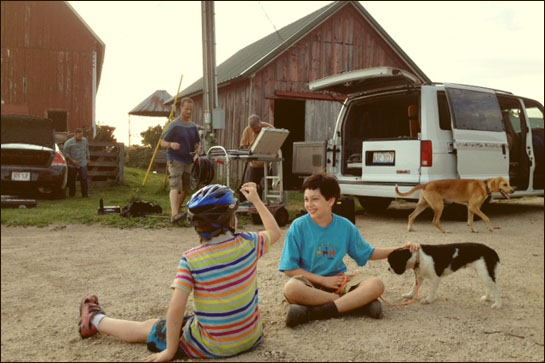
Even the Farmer, who was initially was the one who thought doing a reality show was a complete waste of time. He walked over to shake everyone’s hand and to thank them for making the two days so fun for us.
Then, as they drove away, he took a nice long rest.
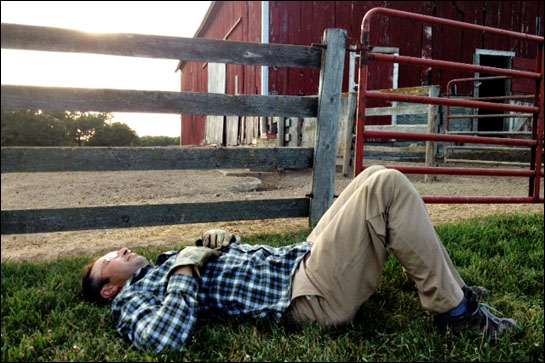

I was wondering what your take was on personal involvement. A career that you know you’ll be taking home with you, that you know will cause you emotional trauma and heartache, and possibly lessen your ability for big-hearted compassion at home. A career you might cry over, because at the end of all your efforts, someone died, or something huge failed.
Would you recommend that over a calm, potentially aggravatingly boring job, hours and pay being equal? (and physical exertion and respect being equal)
I hope you’ll post a link to the show at some point. I’d love to check it out!
Have you given up your right to say no to the final cut? Would giving up that right be ok with the farmer?
You have great advice. Women can definitely be moms while moving up in their careers.
You have a great website that I have been referring to with regards to reading new articles. Keep it up. scientific sales jobs
This is a fantastic idea. I would absolutely watch this.
Superb as usual. Thanks for the extra photos. Love the boots and the wisdom.